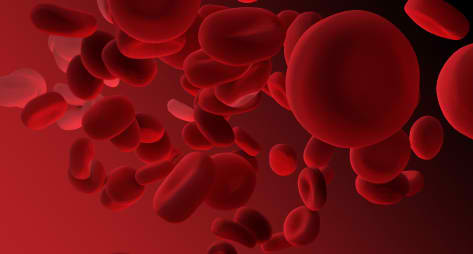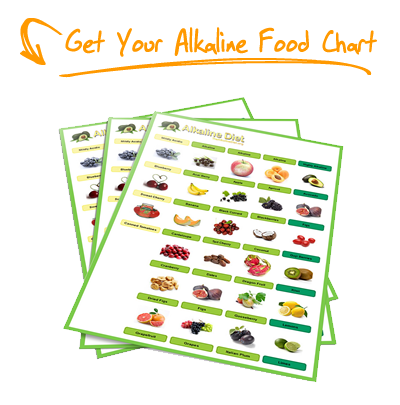Blood Type Diet – Eat Right For Your Blood Type
Posted on 26. Oct, 2010 by Staff Writer Candy Del Carmen in Blog
 If there is one genetic biomarker that can determine how well we can digest and absorb food nutrients, this is no other than our blood type. The concept of Blood Type Diet or “eat-right-4-your-type” is based on the study of Peter D’ Adamo, ND linking blood type of an individual to specific nutrition that will benefit human health. How true is this claim? To balance this concept, this article attempts to lay out all the essential information regarding the concept of blood type diet and some of the scientific explanation that tells otherwise.
If there is one genetic biomarker that can determine how well we can digest and absorb food nutrients, this is no other than our blood type. The concept of Blood Type Diet or “eat-right-4-your-type” is based on the study of Peter D’ Adamo, ND linking blood type of an individual to specific nutrition that will benefit human health. How true is this claim? To balance this concept, this article attempts to lay out all the essential information regarding the concept of blood type diet and some of the scientific explanation that tells otherwise.
Blood Type Diet Concept
Human blood are classified into four groups namely type A, B, AB and O. Each type refers to kind of antigen or type of protein found on the surface of red blood cells. The blood type is inherited from parents like colors of eyes and other physical features. The concept of blood type diet is all about focusing on dietary lifestyles tailor fit to specific blood groups wherein people can adjust their diet based on their genetic make-up.
Type A – people with this blood type have thicker blood and sensitive immune system and are not advisable to consume dairy products, meats, and animal fats. Also, these people have high risk to develop diabetes, cardiovascular diseases, and some types of cancer. The nutrition tailored for them are specifically more on fruits and vegetables, high carbohydrates and low fat.
Type B – people with this blood type are recommended to consume more of vegetarian diet and advised to rarely eat fish, meat, dairy products and strictly avoid chicken. These people are also at risk of developing cancer and heart diseases.
Type AB – people with this blood type have the same diet pattern like people with blood type B which recommends consuming more of vegetable diet, occasionally eat fish, meat and dairy products. Lastly, avoid eating chicken.
Type O – people with this blood type are more likely get affected with high stomach acid leading to ulcers because they have thinner blood and at risk of blood clotting. This is the universal blood wherein people can donate blood to other blood type particularly for those who have Type AB blood.
Dr. D’ Adamo says that lectins can cause the blood clotting to someone with wrong blood type leading to series kidney and liver problems. Lectins are sugar-containing proteins commonly found on food surfaces that cause other types of cells and molecules to stick together.
He theorizes that different blood types can affect the secretion performance to digestive juices. For example, people with O blood type are capable to produce higher stomach acid which often leads to gastric ulcers. He also claims that elevation in urine indicant levels of people with gastrointestinal diseases can be linked to specific blood types affected to the interaction of foods with intestinal bacteria.
Studies Linking Blood type and Diseases
Ever since when blood type diet becomes well-known, researches and medical practitioners begin to apply some clinical studies associating the theories of blood type diet to the trend of medical disorders. In 2009 Boston study of a blood type risk association whereas in their researches made, they found that pancreatic cancer is 72% higher for people with type B blood, 51% greater chance for people with blood type A and B, and 32% higher for people with Type A blood.
Furthermore, for blood types such as O and B, people have greater chance to get infected with fever, typhoid, cholera, and bubonic plague. On the other hand, blood type A shows susceptibility to smallpox virus. Lastly, blood sucking insects carrying several diseases prefer people with Type O blood.
Other Views on Blood Type Diet
If there are proponents of this novel idea of blood type diet, there are also critics of the said concept. Since our blood types do not change and remains constant, the medical conditions are changing over a lifetime as the result of dietary lifestyle. With this regard, state of health cannot be accounted on the blood type and the specific diet alone.
Best explanation could be the fluctuating nutritional requirements of aging people. For instance, the usual hormonal can slowdown, mineral levels decline such as potassium or zinc, an individual’s stomach acid, and the levels of sodium and potassium increase as people gets older and this is regardless of blood type and dietary intake.
Meaning to say, even if you have blood type O who can tolerate to eat red meat and high protein diet, the body’s chemical changes can result to high blood pressure, water retention, and elevated blood sugar. Therefore, you will be recommended to shift your diet to vegetarian diet contains more vegetables and fruits and less intake of phosphate food sources such as meat and others.
For more scientific explanation, regardless of blood type, every time we eat food which is not compatible with our stomach acid and blood enzymes, agglutination process takes place. This may sound alien to your vocabulary but the wonder of this chemical reaction is that our body produces antibodies that protect us from foreign substances or called antigen that can attack our immune system.
Each type of antibody is specifically designed to attach to any antigen that our body has the capacity to better eliminate these foreign invaders. How is that possible? Imagine that when you eat food not compatible with stomach and blood enzymes, the food is not digested properly and remains foreign substances. Hence, minerals and vitamins cannot be absorbed by blood streams. When antibodies glue to these antigen, you may experience gas, bloating, stomach ache, or sometimes vomiting and diarrhea.
Therefore, human body is like a complex organism that tries to handle everything. However, as much as it wants us to protect from any harmful diseases, sometimes it cannot function well and we can not solely depend on the process of agglutination. In general perspective, it is worth taking a note that any food contains saturated fat (most especially in meat) can greatly harm the body in the long run, regardless of what blood type. Most often than not, the damage to health can be irreparable to great extent such as slow metabolism, digestive problems, obesity, elevated blood pressure, cardiovascular diseases, and cancer.
Wrap-up
Although we would like to believe that blood type and diet have significance in human life, health problems cannot be predetermined by blood. “You are what you eat” remains applicable to determine the state of wellness of an individual and not the new cliché of “eat what you are” which means that optimal diet is tailored fit on certain blood type.
At the end of the day, it is our improper diet and unhealthy lifestyle that can determine how long we can live and survive. If more conclusive results will be conducted and medical science can come a long way to make promising discovery on how people can live longer that can be linked to individual genetic make-up, we are crossing our fingers and wish future researchers all the best of luck. But for now, sticking to healthier and natural diet (more on vegetables and fruits, less meat, dairy products, etc) is the only option and best recommended for a healthier wellbeing.





Carla
25. Jun, 2013
I thought I was the only one to live a blood type diet… Thank you and sharing…